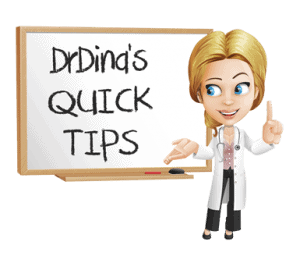Deep Cleaning Teeth With Flossing: How To Create Good Habits For Kids
If there is one area of oral hygiene that we all readily admit to falling behind on it’s undoubtedly flossing. Why? Because it’s awkward, some of the contacts between our teeth are too tight, and it’s just plain strange to use a thin string to clean any part of ourselves. So when I ask parents if they are flossing their children’s teeth, I get a lot of “Are you kidding me?” looks. How do we create good habits for kids around flossing?
“Brushing without flossing is like showering while keeping your arms at your side.”
Do we need to floss children’s teeth, and if so, why and starting when?
The simple answer to the first question is “Yes, we do need to floss children’s teeth; even though they are baby teeth”. Interproximal caries, cavities in between the teeth, are one of the most common places that we find decay in children. Flossing, cleaning the area between the teeth, should logically help alleviate this. If that’s not enough reason consider what a wise instructor in dental school once told me about flossing: “Brushing without flossing is like showering while keeping your arms at your side” or his advice to patients “Only floss the teeth you want to keep”.
“Only floss the teeth you want to keep.”
When to start with flossing is actually a pretty easy answer. Consider what you are trying to accomplish and the answer becomes clear. Once the bristles of the toothbrush can’t get in between the teeth to clean them because the teeth are in contact with one another, it’s time to floss. It doesn’t matter if your child is 18 months, three and a half, or eight years old. The set up of their teeth gives you the answer. Typically though, the first teeth with closed spaces between them are the baby molars, usually around 3 – 4 years old. You will not harm the gums by flossing. Letting plaque and bacteria accumulate will.
You will not harm the gums by flossing. Letting plaque and bacteria accumulate will.
Since a long string of floss wrapped around your fingers in your child’s mouth sounds like a recipe for getting your fingers chomped on, consider using flossers, also known as floss sticks. They are less cumbersome, they spare your fingers, and allow you better access to the far reaches on the mouth. And provided that you wipe the string so you are not just transferring plaque from one spot to the next, flossers can be just as effective as traditional string floss.
So start tonight adding flossing the your brushing routine at least once a day, and you’ll be cleaning 40% more tooth surfaces than you did without floss.
Quick Tips:
-
Floss if the teeth are touching, no matter the age
-
Cavities between the teeth are very common
-
Use flossers if that’s easier












